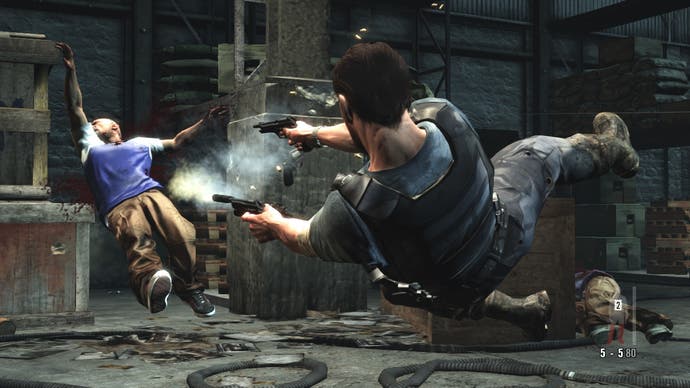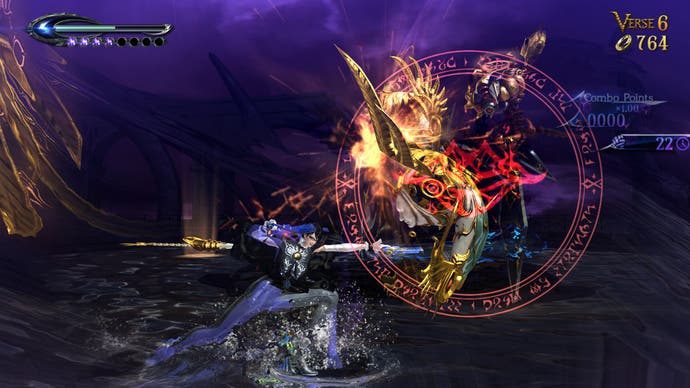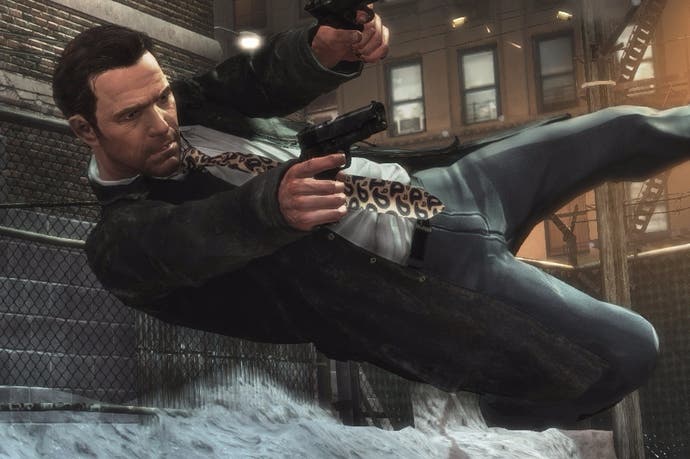How video games win back time
Against the clock.
Slow motion in art doesn't merely slow the world down, but renders it supernatural. We comprehend objects travelling at a sliver of their usual speed differently, picking up on nuances and leaping to conclusions that might otherwise evade us. "Even if one has a general knowledge of the way people walk, one knows nothing of a person's posture during the fractional second of a stride," notes the philosopher Walter Benjamin, discussing the radical potential of film in the 1930s. "The act of reaching for a lighter or a spoon is familiar routine, yet we hardly know what really goes on between hand and metal, not to mention how this fluctuates with our moods."
Film-makers have seized on this eerie estrangement for a variety of purposes - some profound, some crude. In 2001: A Space Odyssey, a triumphantly lobbed animal bone becomes the mournful pirouette of a starship in orbit. In the work of Sam Peckinpah, slow motion serves to embellish the throes of death, with bodies jolting and recoiling uncontrollably as bullets punch into them - a spectacle that may seem tame today, next to the spasmodic bloodshed of a movie like 300, but prompted revulsion among viewers of The Wild Bunch in 1969.

Video games, too, have long made slow motion a part of their arsenal, most obviously and I think, enduringly in the shape of Max Payne's bullet time ability. Whether you look to Remedy's original sharp-shooting boozehound or Rockstar's flabby, Breaking Baddified reinvention, Max is a being continually on the brink of implosion, but buried inside the frenzy and despair are moments of unearthly if murderous serenity.
Hit a button, and reality unclenches. It's not just a question of having more leisure to aim - the world itself becomes a foreign element. Hitherto indistinguishable gun reports stretch and deepen into rich, layered audio artefacts. Bullets tunnel through a suddenly resistant air, leaving trails behind them, like flying fish dipping back into the ocean. Even Max himself grows graceful - a pub bruiser no longer, sprawled across the view like a cat in repose even as his arms swivel back and forth at "normal" speed, loosing flame into the bodies all around him.
It's possible that bullet time appeals to many seasoned players because it cuts against the popularity of hit-scanning in competitive multiplayer shooters, whereby developers don't actually render each nugget of vengeful metal in transit but draw a trajectory between shooter and target, then calculate the odds of an impact. To dive into Bullet Time is to rediscover the glories of Serious Sam, Tribes and Japanese arcade shoot 'em ups, a more "honest" form of virtual conflict in which projectiles exist on the same footing as the player's avatar.
But largely, I think, the thrill of bullet time is to see Payne's hard-boiled back-alley universe transformed into something purely and miraculously kinetic, a display of virtual physics which doubles as an expression of the character's sociopathic tendencies - his ability, like Peckinpah in The Wild Bunch, to perceive the vaunted human form as little more than hurtling, collapsing flesh. Platinum's salacious action hit Bayonetta takes up this idea and reworks it into a kind of titillation. Where Bullet Time can be activated at whim, Bayonetta's Witch Time is triggered when you time a dodge perfectly - accompanied by the taunting catchphrase "so close!", the move becomes a way of punishing enemies, and by extension the player, for presuming to lay hands on the witch's cavorting physique.

If these games are feted for their wanton abuse of the fourth dimension, it's important to remember that all games dabble in time manipulation to an extent. Time in general is at least partly an artificial quality, coalescing under observation, subject to all the usual human vagaries of perception, judgement and memory. As with much else, video game simulations are an opportunity to deconstruct this process by abstracting it.
This needn't be explicit, as in a game like the amazing Superhot, in which time only passes when you move - consider Halo: Combat Evolved's trusty battle rifle, with its Aliens-inspired ammo readout. Fired at a precisely given rate, those 30 bullets are, in a way, solidified time, a tactile indicator of the duration of an encounter that shapes your impression of Halo's tempo, much as the game's pulsing main theme "accelerates" the unfolding of each firefight in the run-up to a climatic battle. Most first-person shooters are woven together from such ballistic refrains, navigated as much with recourse to the overlapping timeframes created by grenade countdowns, enemy pattern behaviours and so forth as care of static quantities like cover distribution or the colour palette.
I keep coming back to bullet time and its various incarnations in other games, though, because it speaks to a prevailing anxiety - the growing conviction that there is no time at all, no time in which to acknowledge and digest the sheer volume of stimuli chucked at us by the internet. "Getting information used to require movement, effort," writes A. Reuben Brower, in a study of how information consumption differs between students today and before the advent of internet-connected portable devices. "Now, it takes a constant act of will to keep all the inbound information at bay long enough to think anything at all."
Though hardly designed with this in mind, games like Max Payne and Bayonetta can be interpreted as fantasies of safety and security amid information overload - about how each instant might be arrested and cracked open to create an atmosphere of tranquility, in which you're finally able to act upon your surroundings in peace. Benjamin, similarly, regarded slow motion in cinema as a means of "exploding" the "dungeons" of urban society, revealing "undreamt-of room for manoeuvre" in the textures of everyday existence.
Games often steal time away from you - who hasn't known the horror of looking up from just-one-more-round of Overwatch or Destiny to discover that it's past 3am. But they are also, in this analysis, a means of wrestling it back, moulding and investigating it, in order to dwell upon the strange infinities that linger in every fractional second.









